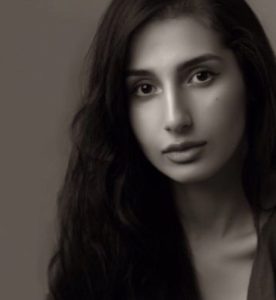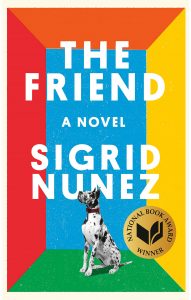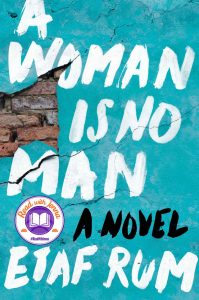 The PEN Ten is PEN America’s weekly interview series. This week, PEN America’s Public Programs Manager Lily Philpott speaks with Etaf Rum, author of A Woman Is No Man (Harper, 2019).
The PEN Ten is PEN America’s weekly interview series. This week, PEN America’s Public Programs Manager Lily Philpott speaks with Etaf Rum, author of A Woman Is No Man (Harper, 2019).
1. What was the first book or piece of writing that had a profound impact on you?
The Bell Jar by Sylvia Plath.
2. What is one book or piece of writing you love that readers might not know about?
Olive Kitteredge by Elizabeth Stout.
“We need stories to help us better understand the human condition, and by doing so, develop empathy for one another.”
3. What is your favorite bookstore, or library?
My favorite bookstore is Shakespeare and Company in Paris.
 4. What is the last book you read? What are you reading next?
4. What is the last book you read? What are you reading next?
The last book I read was The Friend by Sigrid Nunez. Next I’m reading The Dutch House by Ann Patchett.
5. How does your identity shape your writing? How does the history of where you are from affect your identity, and in turn, your writing?
As an Arab-American woman and daughter of immigrants, my identity shapes my perspective of the world, and as a result, everything I write. Because of my background and upbringing, I find myself drawn to themes of identity, culture clash, displacement, and gender roles.
6. What advice do you have for young writers?
Find your truth and tell it, even if you’re afraid. Perhaps especially if you’re afraid.
7. Which writers working today are you most excited by?
Khaled Hosseini, Jhumpa Lahiri, Mary Laura Philpott, Elizabeth Gilbert, Melissa Rivero, Moriel Rothman-Zecher, Elizabeth Strout.
“…because I am a woman of color writing about an underrepresented community in literature, it’s easy to mistake my story as the only story, but this is false and dangerous.”
8. Which writer, living or dead, would you most like to meet? What would you like to discuss?
Sylvia Plath, and I’d want to discuss art, writing, creativity, and mental health.
9. Why do you think people need stories?
We need stories to help us better understand the human condition, and by doing so, develop empathy for one another.
 10. Previously you have spoken about the ‘danger of a single story’ being used to represent an entire culture or community. With this in mind, how did you approach the process of authentically telling the stories of the Arab-American community in Brooklyn that your debut novel A Woman Is No Man is set in?
10. Previously you have spoken about the ‘danger of a single story’ being used to represent an entire culture or community. With this in mind, how did you approach the process of authentically telling the stories of the Arab-American community in Brooklyn that your debut novel A Woman Is No Man is set in?
There is a burden on writers from underrepresented communities to tell their stories authentically, yet without enforcing Western-imposed stereotypes. I wrote A Woman Is No Man with the intention of being authentic to my own experiences and truth without representing the entire Arab community. My story is not the single story of what it means to be Arab or Arab-American today, but because I am a woman of color writing about an underrepresented community in literature, it’s easy to mistake my story as the only story, but this is false and dangerous. This is why we need more stories from underrepresented communities, especially women.
The daughter of Palestinian immigrants, Etaf Rum was born and raised in Brooklyn, New York. She has a Masters of Arts in American and British Literature as well as undergraduate degrees in Philosophy and English Composition and teaches undergraduate courses in North Carolina, where she lives with her two children. Etaf also runs the Instagram account @booksandbeans and is also a Book of the Month Club Ambassador, showcasing her favorite selections each month. A Woman Is No Man is her first novel.
